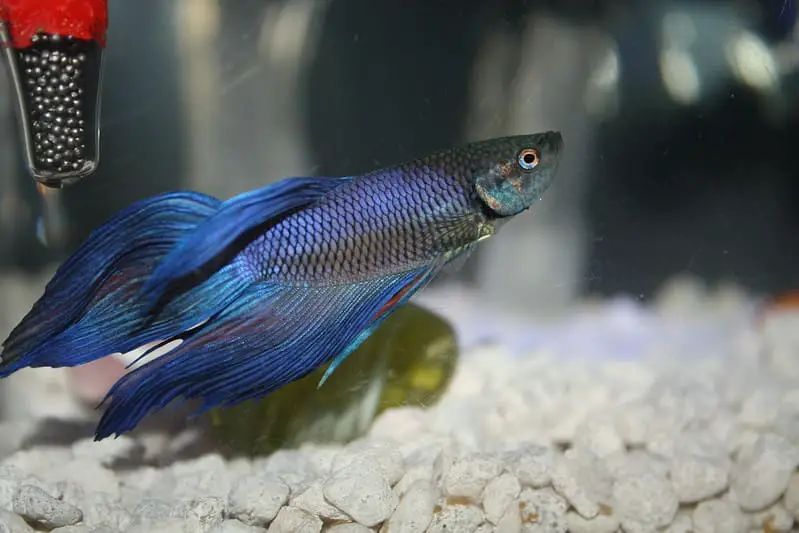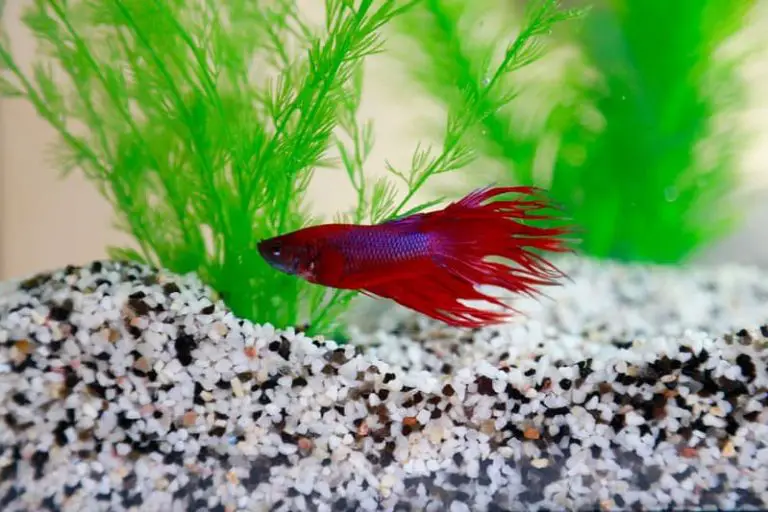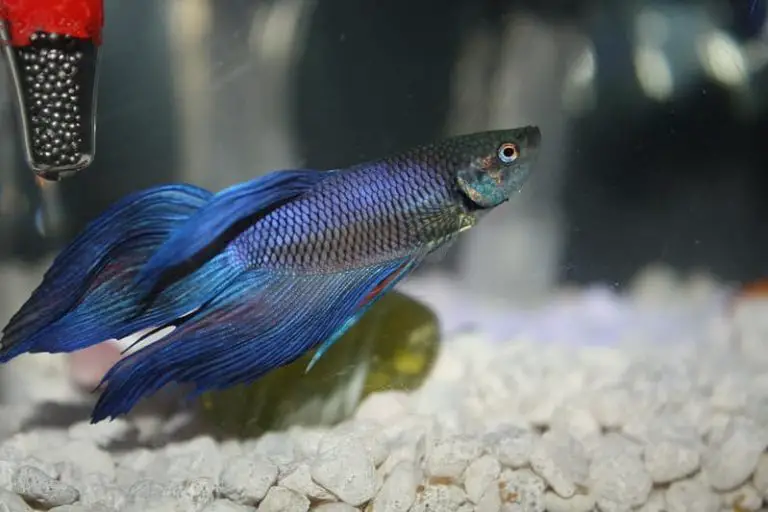How Long Can Betta Fish Go Without Water? You Might be Surprised By The Answer

It might seem surprising to you the amount of time a fish can last out of the water, betta fish are carnivorous animals that can live more than 10 hours out of the water, this because they have an organ called labyrinth located on top of their head.
This organ is specific to fighting fish and allows them to take in air from the surface, which helps increase the level of oxygen in the bloodstream.
I have read several times about people whose betta fish by accident or in an unsuspected way, have dawned out of the fish tank, to their surprise still alive. This proves that a betta fish can last much more than 10 hours out of the water, under the right conditions.
However, the fact that a betta can survive out of water for so long, does not guarantee its life, in fact, this traumatic event can cause irreversible damage inside the fish, which would definitely lead to death.
During dry seasons, betta fish can manage to survive buried in the mud. Their diet is based on insects that fall into the water, which is why they have an upward-facing mouth.
Why can betta fishes breathe atmospheric air?
The bettas fish are from Asia, the labyrinthine fish like the bettas, needed their labyrinthine organ to be able to survive in the rice fields where they come from.
These rice fields are not very deep, perhaps only 15 cm. and therefore the water is heated very strongly by the Asian sun. So the water is quite hot, and hot water also means oxygen-poor water.
That is why God this species of fish evolutionarily developed this special labyrinthine organ with which they can breathe the atmospheric air.
Betta can not only live under water, but absolutely needs the atmospheric air to survive, because they have gill breathing in addition to their labyrinth, but the gills are probably less developed in favor of the labyrinth organ.
How does a betta fish breathe using the labyrinth organ?
The betta splendens, like the rest of the fish, has gills for the addition of oxygen to the bloodstream through the natural liquid medium (water); like the rest of the anabanids, it has an auxiliary organ called the labyrinth and it is located in the upper part of the head, thanks to which it is capable of performing two vital functions in the life of the betta (essential for its survival and to complete its life cycle, in its natural environment).
The addition of oxygen to the bloodstream to increase the proportion of it and facilitate a mixture in his body, product of the liquid and gaseous environment, in order to produce an oxygenated adhesive foam provided with bactericidal agents, this foam is the raw material to create and form the bubble nests that will protect the clutches of descendants.
The betta labyrinth is an organ for taking oxygen from the air; this information is entirely true, but it requires a nuance: The labyrinth helps increase the level of oxygen in the bloodstream, but it is not capable of supplying the betta organism with all the oxygen it demands to perform its vital functions.
Therefore, the labyrinth is an auxiliary, and not a primary, organ for breathing betta. It is composed of many thin sheets, with a lot of blood flow and through which they take the oxygen to mix in the body.
Although it is not the main organ for breathing, it is very important, because both in its natural environment and in captivity (usually in aquariums or containers without aerators) it is vital to enrich the oxygen mixture of the blood using the gaseous medium and to compensate the levels of CO2.
What happens to a betta fish that is out of water for a long time?
After being out of the water for too long, a betta is recovered into the liquid medium in time but dying. if it is reintroduced into the aquarium and (if it was dying) you will see how it goes to the bottom.
Then it will start with a spasmodic behavior (rampant behavior), after a few minutes (if there is a lot of luck and the water is well oxygenated) it may recover, it will start to abandon the rampant behavior, to stay stable on the surface but visibly weak.
In all probability, he will die within 24 hours and possibly show dark spots on his skin due to internal bleeding.
When the fish’s oxygen supply is cut off, the brain lowers the heart rate and begins to “disconnect” organs to reserve the available oxygen, trying to ensure the survival of the individual’s essence.
This cut will affect various parts of the brain if the oxygen cut is prolonged, until finally the brain dies (brain death), a few minutes after the heart (cardiac arrest, preceded by respiratory arrest).
If, when we recover the dying betta, it has entered the phase of organ disconnection, the more organs have been disconnected, the greater the danger of death.
In addition, we must take into account that the moment we run out of oxygen and are disconnected, the organs begin to deteriorate and this results in irreversible damage.
In general, they lead to internal shocks and hemorrhages and finally cause the death of the affected specimen.
How often do bettas fish breathe air?
The number of times that a betta fish rises to the surface to “take the air” can vary according to certain characteristics, such as age, activity, conditions of the aquarium, some cases confirm that it is normal to rise once every 30 seconds, other cases claim that it could be 3 to 4 times per day.
Young fish, for example, only breathe through their gills and after a few weeks, the labyrinth organ develops, with which they can/must absorb atmospheric oxygen because the gills are no longer sufficient with increasing body size.
However, it is not a bad thing if you notice that the betta fish comes up too often to take air to check the quality of the water in which it is found.
Life expectancy of a betta fish
A betta fish can live for about four years. However, socialization or stress can significantly shorten its life. With the least possible stress, good planting and compliance with ideal temperature and water values can significantly extend this life span.
In nature, betta fish do not age as much as they do in the aquarium, as they are exposed to significantly more stress from land struggles and predators, are often attacked by parasites, and also die from diseases.
Can a fish drown?
All animal and plant organisms need air, to live, where Oxygen: represents 21% of the air volume. It is formed by molecules of two atoms of oxygen and its formula is O2. It is a very reactive gas, and most living beings need it to live.
When this indispensable supply is lacking for a more or less long time, either by drowning or by rarefaction, we say that the person, animal or vegetable has drowned.
Human beings perish in water because their lungs are constituted in such a way that they can only extract oxygen from the atmosphere. On the other hand, due to the special shape of its breathing organs, the gills are located between the mouth and the pharynx, and that is where the fish takes in the oxygen for breathing.
The water enters through the gills when it opens and closes its mouth, and the blood vessels present in them take in the necessary oxygen by transporting it directly into the blood.
If any cause were to prevent it from taking in the water, it would die by drowning. As the verb drowning means to die of asphyxiation in a liquid, we could say that any fish, under certain circumstances, drowns when it is taken out of the sea or a river.







